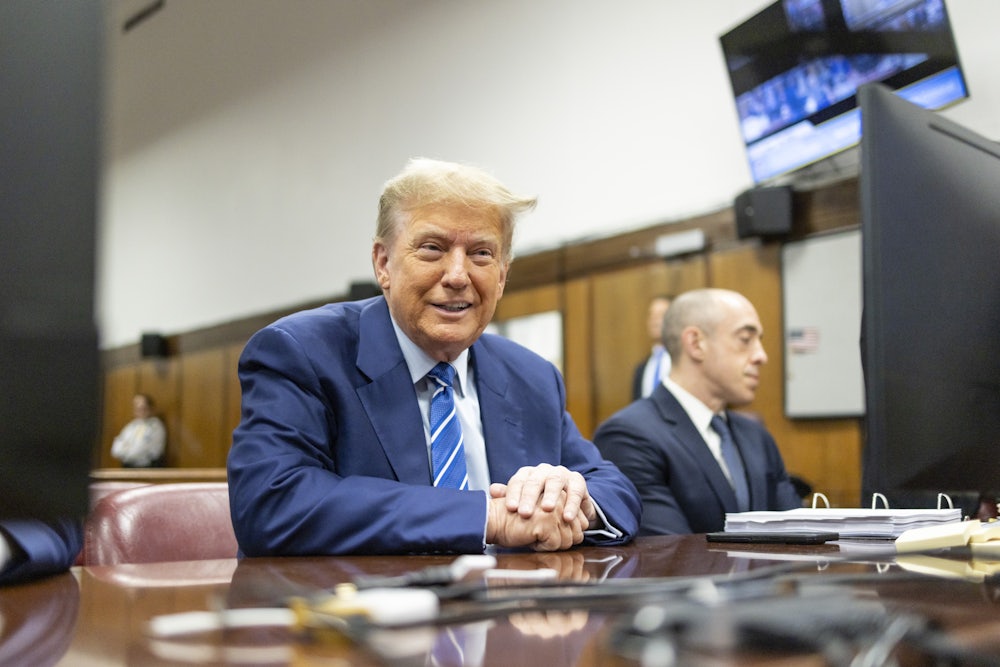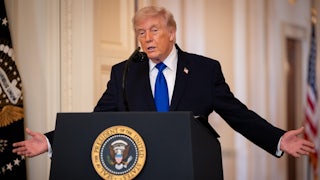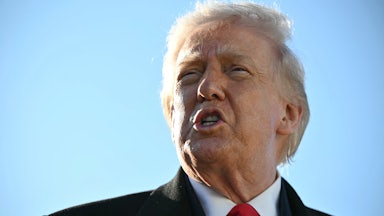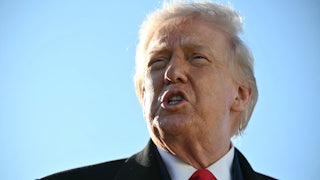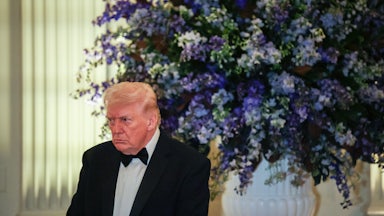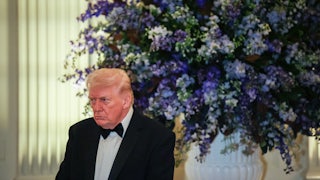Aileen Cannon is at it again. Last month, the federal judge presiding over former President Donald Trump’s prosecution for stealing classified documents guaranteed that no trial would take place before the November presidential election or even the end of the year. Now she is raising the possibility that it might not take place at all.
In a series of orders over the last few days, Cannon agreed to hold hearings from outside legal experts on whether Jack Smith, the special counsel who is prosecuting Trump in the classified documents and January 6 cases, was lawfully appointed to that position by Attorney General Merrick Garland. Along the way, Cannon canceled and indefinitely postponed hearings for other important trial-related matters in a move that will delay it even further.
Multiple conservative legal scholars have filed friend of the court briefs arguing that Smith’s appointment was illegal, but their case is weak. Attorneys general from both parties have appointed special counsels and independent prosecutors for decades, aside from the post-Watergate period when Congress allowed “independent counsels” to operate outside the Justice Department entirely. Federal law and Supreme Court precedent allow for it. This should be easy for a normal federal judge—and yet, Cannon is making it far more difficult than it should be.
Friend of the court briefs aren’t uncommon in the federal circuit courts of appeal, especially in cases with far-reaching practical implications. They also play an important role in how the Supreme Court considers and decides cases. It is almost unheard of, however, for a trial judge to allow friend of the court briefings during a criminal trial, let alone schedule a hearing where third parties can argue directly before the judge.
Cannon’s move raises questions once again about whether she is capable of overseeing a criminal trial as complex and high-profile as this one. The Trump appointee has only overseen a handful of criminal cases since taking the bench in 2020 as a district court judge in Florida. She has struggled to keep the proceedings on track, followed the Trump legal team’s motions down blind alleys, and chastised the prosecution for trivial matters.
That behavior also renews questions about whether she is intentionally steering things in the defense’s favor. After all, her first involvement in the case was to halt the Justice Department’s investigation at Trump’s request, even though she had not yet been assigned to oversee it. The Eleventh Circuit Court of Appeals pointedly overturned her order as both legally incorrect and inappropriate; the Supreme Court declined to second-guess them.
The argument against Smith first came in a filing before the D.C. Circuit Court of Appeals as part of Smith’s D.C. prosecution of Trump on January 6–related charges. Its authors were Stephen Calabresi and Gary Lawson, two leading conservative legal figures. Calabresi is one of the early founding members of the Federalist Society and the current co-chair of its board of directors; Lawson is the board’s secretary. They had previously argued, without success, that the appointment of Robert Mueller to investigate Trump and potential Russian interference in the 2016 election was also unlawful.
In their filing last year, the two men argued that Congress had not authorized the creation of the special counsel position that Smith currently holds. They also argued that even if Congress had created it, Smith would need to be appointed by the president and confirmed by the Senate to hold the position under the appointments clause. That clause requires “officers of the United States”—ambassadors, Cabinet secretaries, and so on—to go through the Senate confirmation process, but not “inferior officers,” who exercise less consequential powers.
“Jack Smith does not have authority to conduct the underlying prosecution,” they told the court. “Those actions can be taken only by persons properly appointed as federal officers to properly created federal offices. Neither Smith nor the position of Special Counsel under which he purportedly acts meets those criteria.”
The D.C. Circuit ignored it and instead ruled only on Trump’s claim that he is immune from prosecution for his official acts as president. The Supreme Court is currently reviewing that case; the alleged unlawfulness of Smith’s appointment did not come up in briefings or oral arguments by Trump during the case. But the former president raised it in February in a motion to dismiss the Florida case currently before Cannon.
“The Appointments Clause does not permit the Attorney General to appoint, without Senate confirmation, a private citizen and like-minded political ally to wield the prosecutorial power of the United States,” Trump’s lawyers argued, quoting from Calabresi and Lawson’s brief. “As such, Jack Smith lacks the authority to prosecute this action. ‘That is a serious problem for the American rule of law—whatever one may think of the Defendant or the conduct at issue in the underlying prosecution.’”
Trump parted ways with Calabresi and Lawson on some points. The former president’s lawyers focused on the appointments clause arguments, brushing aside some statutory arguments raised by the two legal scholars. He also made an appropriations clause argument against Smith’s appointment that was likely rendered moot by the Supreme Court last month. A third friend of the court brief by conservative law professor Seth Barrett Tillman instead argues that Smith is just an “employee” of the Justice Department and not an “officer” at all under the appointments clause.
Smith, in a reply motion last month, rejected the claims that his position was unlawful. He noted that Congress specifically authorized the attorney general to appoint special counsels in a provision known as Section 533. That provision says the attorney general may “appoint officials … to detect and prosecute crimes against the United States.” As a result, Smith counted as an “inferior officer” who does not require Senate confirmation.
Smith also emphasized that his independence is more stylistic than substantive. He emphasized that Garland retained final discretion on all matters. Unlike the old independent counsels who existed after Watergate, Smith can be fired at Garland’s whim—and presumably Biden’s as well. Smith also rejected claims that he was as powerful as a Senate-confirmed U.S. attorney, noting that they have authority over all crimes in their jurisdiction and he can only work on specific cases.
And as for the “employee” argument, Smith rejected it as “arcane” and baseless. “[Tillman’s] sole argument for that remarkable conclusion is that the Special Counsel’s position is not ‘continuing’ because it is not permanent,” the special counsel’s office wrote. “That argument is at war with precedent and with reason. Courts have consistently held that independent and special prosecutors are inferior officers rather than mere employees, and in so holding they have repeatedly affirmed that those positions are ‘continuous.’”
This is not a particularly complicated legal question, except insofar as Trump and his law-professor friends have tried to make it seem more complicated than it is with specious arguments. Other federal judges have dispensed with it at ease. Hunter Biden, the president’s son, argued earlier this year that Garland’s appointment of special counsel David Weiss in that case was also unlawful. Judge Maryellen Noreika, who was appointed by Trump in 2018, rejected that argument outright without additional briefing or hearings.
That another judge rejected the argument is not what truly stands out here: The legal argument made against Weiss’s appointment was substantially different from the one made against Smith. What is telling is that Noreika was able to rule on the matter without holding a multiday hearing where random third parties could make dubious arguments at the expense of real pretrial business. If Cannon is not deliberately dragging this out for Trump’s benefit, then it would be hard to imagine a greater show of incompetence.
